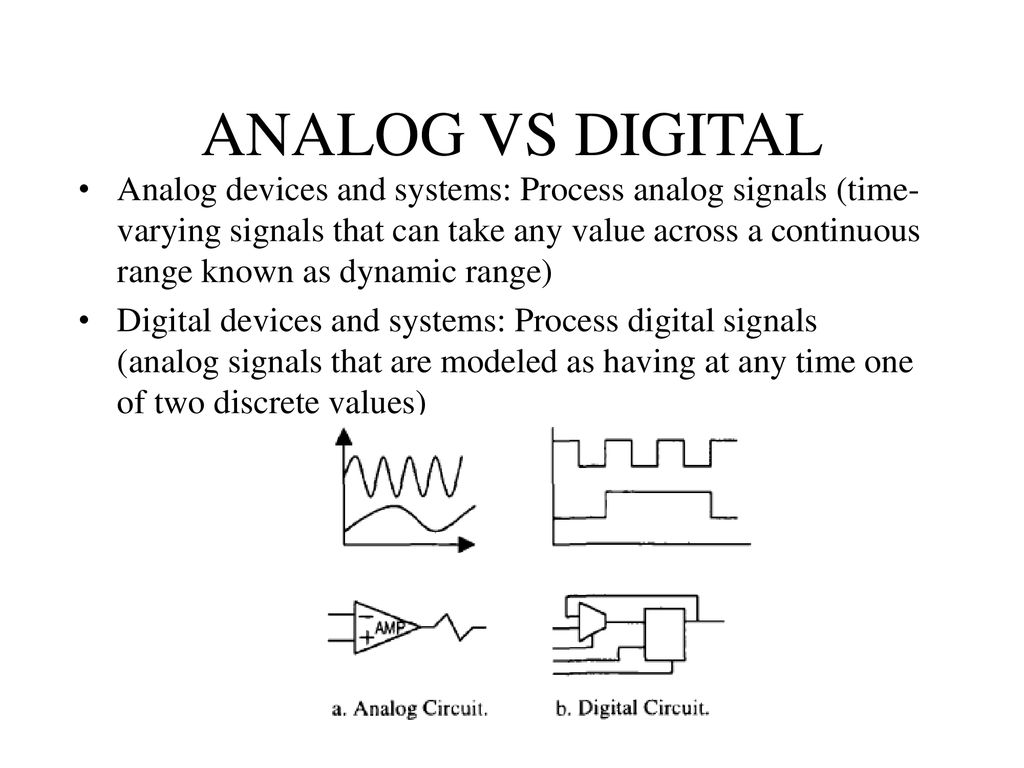Difference Between Analog Circuit and Digital Circuit Circuit Diagram Learn the key differences between analog and digital circuits, how they process signals, and what are their advantages and disadvantages. Compare the circuit components, input and output signals, power consumption, accuracy, and more.

Learn the differences between analog and digital circuits based on the signals they process and the components they use. See examples of simple analog and digital circuits and their applications. Analog circuits can be very elegant designs with many components, or they can be very simple, like two resistors combining to make a voltage divider.In general, though, analog circuits are much more difficult to design than those which accomplish the same task digitally. It takes a special kind of analog circuit wizard to design an analog radio receiver, or an analog battery charger; digital

Analog Circuits vs Digital Circuits Circuit Diagram
When deciding between analog and digital circuits for a particular application, engineers must consider several factors: 1. Signal type: If the input or output signals are inherently analog, such as sound or light, analog circuits may be more appropriate. If the signals are discrete or the application requires complex computations, digital

In digital circuits, the i/p signals change from analog to digital (A/D) form before it is processed, that is the digital circuit is accomplished by processing digital signals only, and generates o/p which is again changed back from digital to analog signals (D/A) so that the o/p gives relevant results that can be understood by individuals. Learn the basic concepts and examples of analog and digital circuits, how they work, and what are their advantages and disadvantages. Analog circuits use continuous signals, while digital circuits use discrete signals and logic gates.

Difference between Analog & Digital Circuit Circuit Diagram
Learn the definitions and examples of analog and digital signals, and how they differ in time, amplitude, and noise. Find out how analog and digital systems are used in electronics, computers, and communication.
